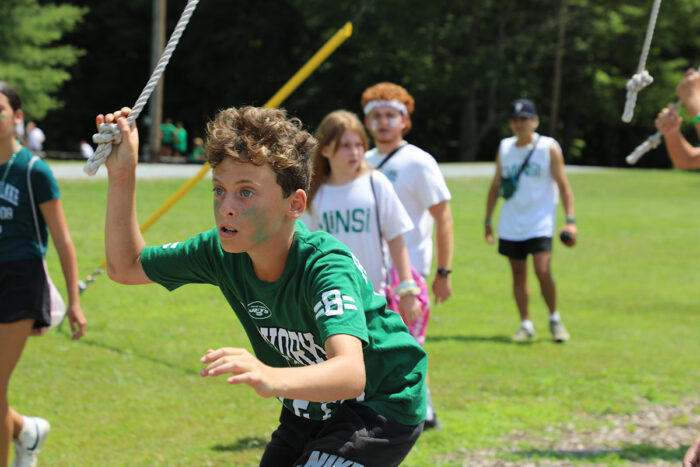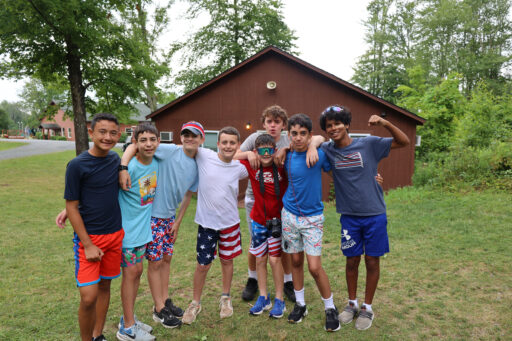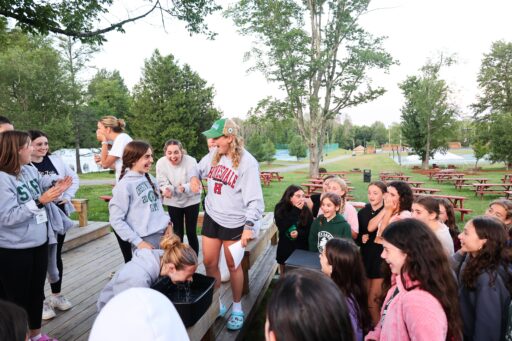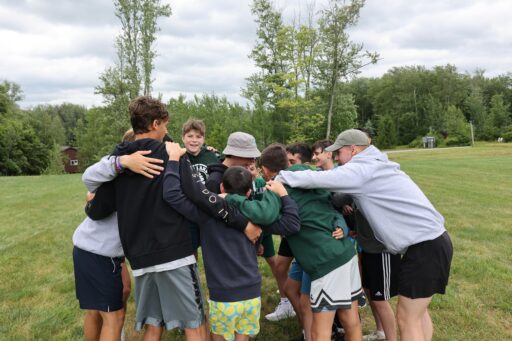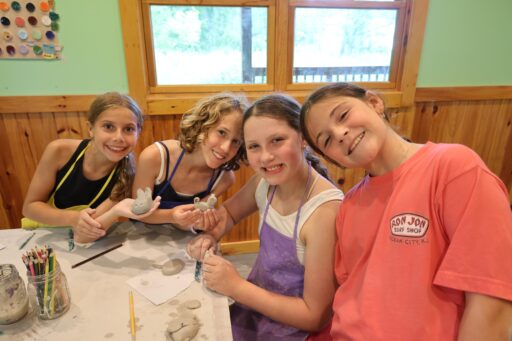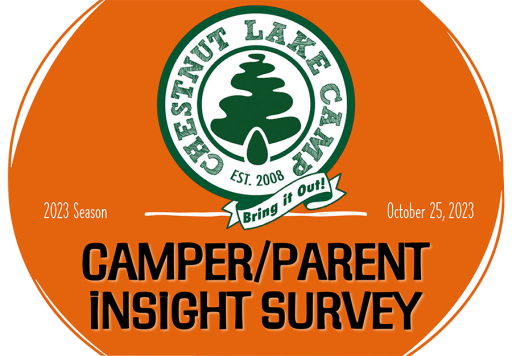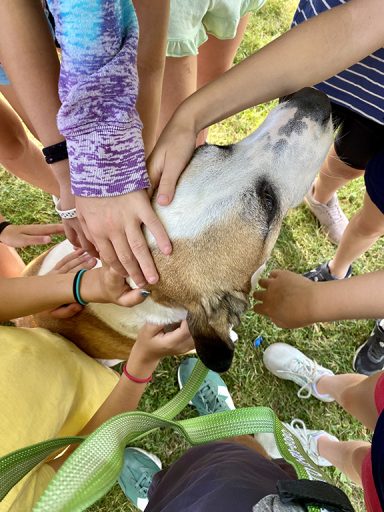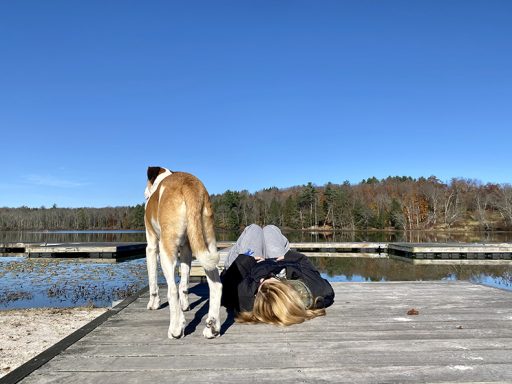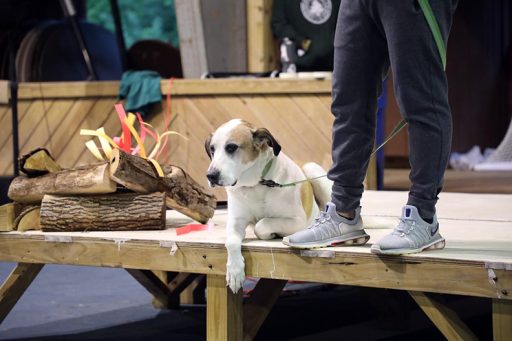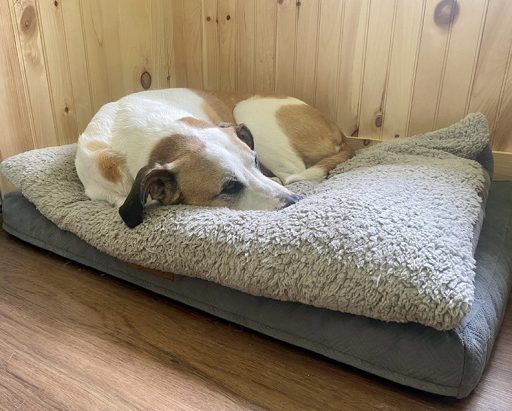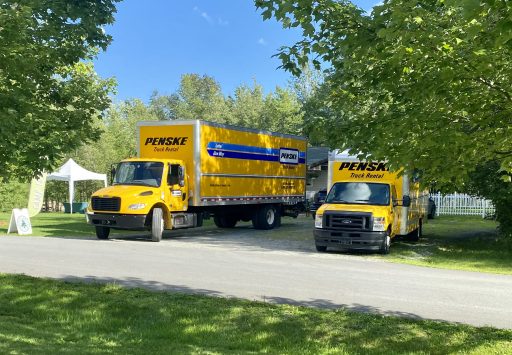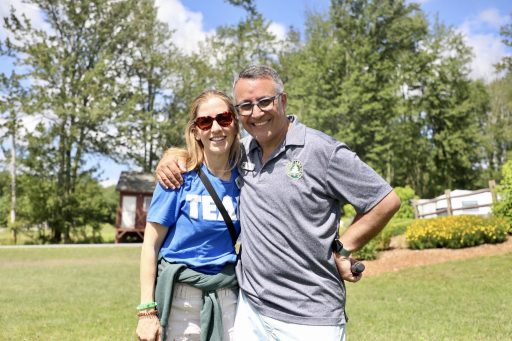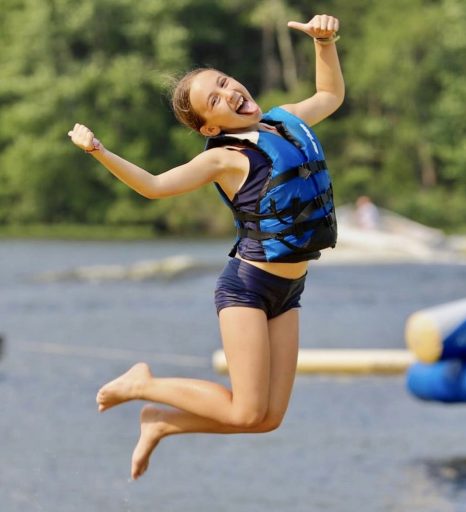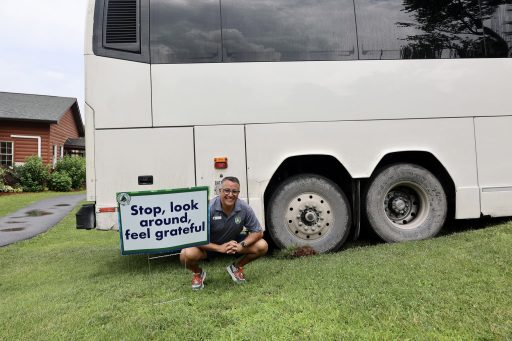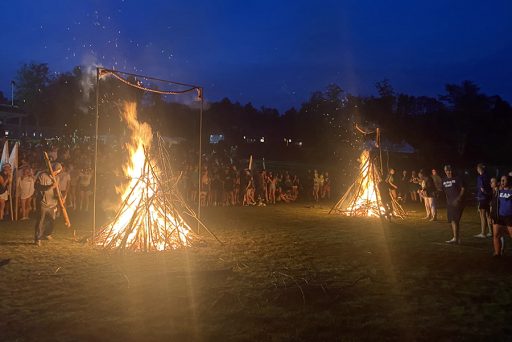By Aaron Selkow, Owner/Director
Chestnut Lake Camp is a place of tradition. We use the word often during the summer to reference the rituals that we enjoy as part of our program, to describe the unique way that we may do things, and to act as a shortcut answer to the eternal question of “Why?” that our campers and staff members pose throughout each day. When we come together shoulder-to-shoulder to sing our Alma Mater, we call that tradition. When we enjoy the presentation of Community Service Award nominees each week with the entire camp together, we call that tradition. When we watch as the Rope Burn fires build and build and try to will the twine to separate and fall, we call that tradition.
One tradition at our camp that occurs on the last night of a session (like this evening, as our First Session of 2024 comes to a close) is one that does not appear on a schedule nor in any promotional materials. This is an experience for our campers that follows three or four weeks of immersive and intensive life in an environment that, at once, is both contrived and spontaneous. The scaffolding of safety, supervision, and planning surrounds our kids as they move through the ups and downs of a time without the comforts of their homes, many miles from their phones and screens, detached from SnapChat. At the same time, they’re forced to socialize using words and gestures that are in three dimensions. While parents sit at home on that last night of separation from the focal points of their lives, they’re unaware of what will be happening on that final evening. For that matter, they’re unaware of most everything that’s gone on for the previous twenty-one, twenty-eight – or for our Full Summer superstars – fifty days.
When the sun rises in the morning on departure day at camp, some of our campers see it happen. The glare brought by a new day can be too much for them after this night without reverie. But the sheer joy that they feel makes it alright. They’re tough, and this time is another of the many chances we have at camp to see this in them. It’s something that develops over those long days that are rife with experiences that test them. The qualities that they are developing during camp can be called many different things, but a favorite of mine is grit.
The concept of grit is explored extensively in Angela Duckworth’s Grit: The Power of Passion and Perseverance. Although Duckworth

does not include camp as a subject of her research in the book, much of what she describes is relevant at camp when you consider what is happening over the weeks, hours, minutes, and seconds that young people spend there. Duckworth suggests that “Grit entails working strenuously toward challenges, maintaining effort and interest over years despite failure, adversity, and plateaus in progress.” She continues, “The gritty individual approaches achievement as a marathon; his or her advantage is stamina. Whereas disappointment or boredom signals to others that it is time to change trajectory and cut losses, the gritty individual stays the course.”
So, it comes to pass that our camp parents are staring at their devices
on the last night clicking “Refresh” for the umpteenth time, without an accurate sense yet of how strong their children have become since they dropped them off. On one hand, we take great care in protecting children from harm while they’re at camp and understand when parents describe their daughters and sons as gentle, sensitive, and in need of special attention. On the other hand, we relish our opportunity to push them out of their comfort zones, surprise them, allow them to fail at things, unbridle them from the constraints of what is, and encourage them to shape what will be. To do this well, we count on their development of grit over time that will help them drive through the obstacles that come at camp as well as the ones that await them back at home.
It’s on the last night that our campers throw caution and sleep to the wind and dedicate themselves to staying up. These final hours with friends are for looking back at the countless moments of the summer and reliving as many as possible. While they laugh at, annoy, and support each other in those waning hours – and somehow manage to lose a few more items with their names on them – they can reconcile even the toughest aspects of the camp season because, over the previous four weeks, they’ve changed.
When sleepovers end in the real world, our kids come back to us in much the same way that they leftus the day before. Maybe fun and games ensue overnight, but the experience of being in a friend’s room or basement for such a relatively short time fails to be the extraordinary experience that the last night of camp can be. Staying up extra late at camp is for kids to celebrate the totality of the summer away from home in a place where they’ve grown up a bit more, become more independent, learned new things, made great mistakes, struggled with challenges, and even discovered something about themselves that they never knew. In the middle of the night, kids at camp can think profoundly about who they are and have become over these weeks, the love they feel for another person, or the security they have in their skin that’s unlike what they may sometimes feel at home. Part of the tradition is conspiring with their friends and counselors to stay up just a little bit later so that they could somehow make this sleepover never-ending.
What happens at camp is rooted in the traditions that we make. We like to think they’re age-old and established by generations before, but we often forget that everything at camp started somewhere, sometime, and by someone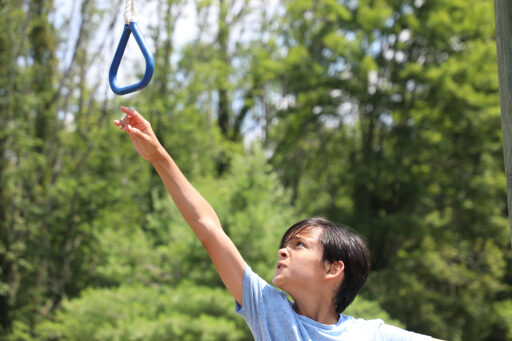 , and in most cases, it was never too far from the present. We are sometimes afraid of change at camp, yet we try to welcome new ideas and celebrate innovation. Those are qualities of camp that are so valuable in the real world for us all, but especially for our children.
, and in most cases, it was never too far from the present. We are sometimes afraid of change at camp, yet we try to welcome new ideas and celebrate innovation. Those are qualities of camp that are so valuable in the real world for us all, but especially for our children.
We build a culture at camp that values grit. It isn’t something that many other communities can develop as quickly and effectively, and at camp, we reward people for it. The campers who make it through difficult moments are role models for others. The campers and staff members that we say goodbye to at the end of the summer with tears running down our cheeks are the ones who have built grit in themselves and have made us believe in their ability to make a difference in the world.
What if we removed tradition and grit from camp? Can you picture our campers and staff saying they’ve had enough of the things we’ve always done or refusing to take part in the sacraments of camp life? Can you see campers and staff giving in to every challenge or tough situation, never pushing through or taking risks? I suppose there could be a camp somewhere where these hypotheticals could be real, but it’s certainly not in the camp that Ann and I run. Our camp teaches and reinforces values that produce young people who understand, defend, and shape tradition while displaying grit that guides them through the twists and turns they will face in and out of camp. When we, as parents, consider whether camp is worth it for our kids or when young adults are deciding between a summer at camp or one spent elsewhere, we should weigh the values of tradition and grit (along with so many other important things at play.)
Tomorrow will be emotional, and while many of our campers will remain at camp for a fun intersession period and three more weeks of camp, we will welcome the feels of the First Session’s close. The fist bumps, hugs, and grateful, “thank you” comments will be seen and heard throughout the morning and they remind us how special camp can be. Appreciating all that we have accomplished, retelling some of the greatest moments, and sharing that with parents at home or on Visiting Day is another special tradition at Chestnut Lake Camp.


